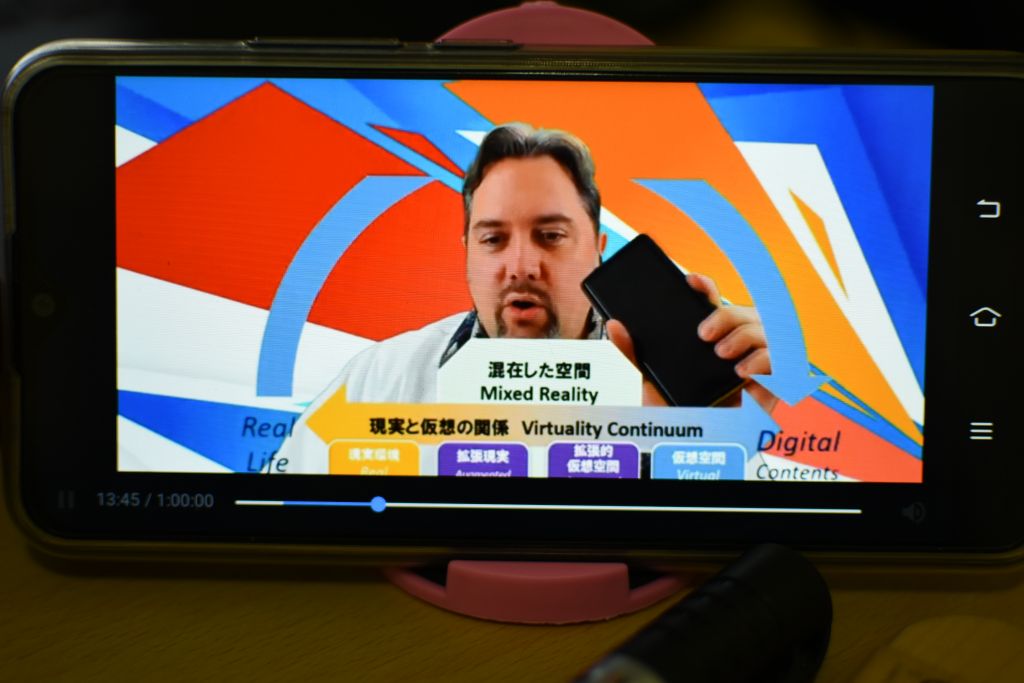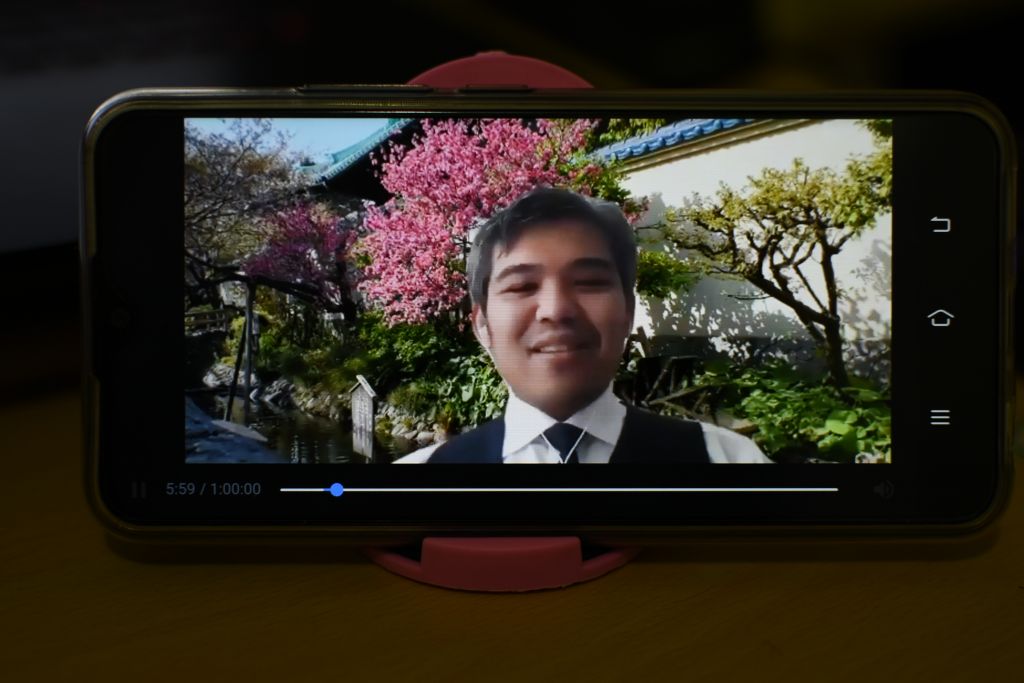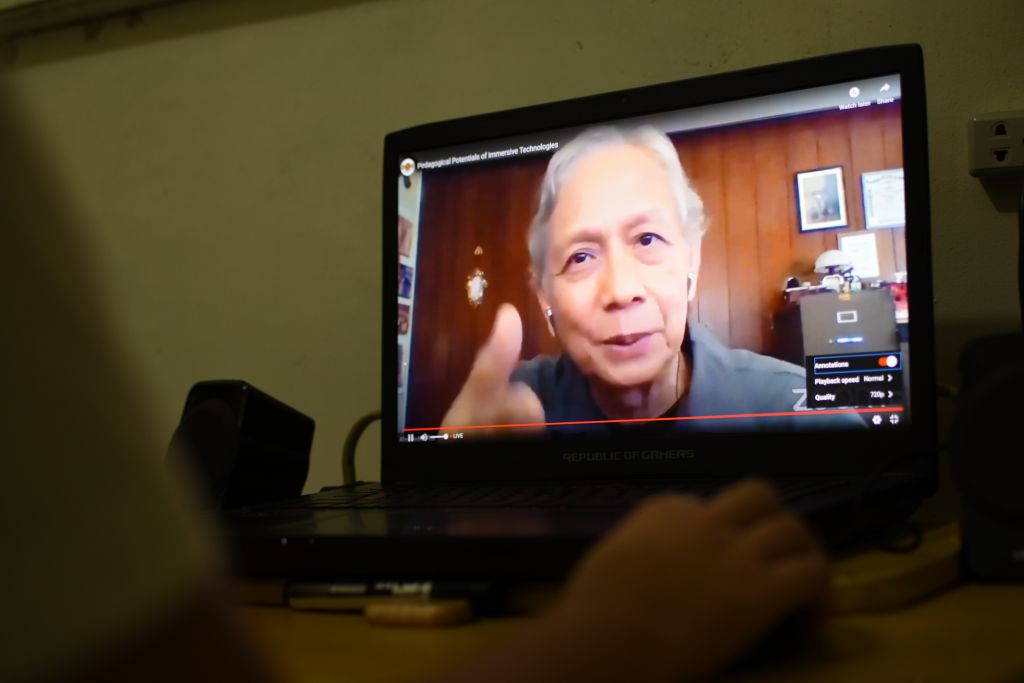The University of the Philippines Open University (UPOU) held the third session of its Edu-Hack podcast series entitled “Pedagogical Potentials of Immersive Technologies” on 3 June 2020. The series featured two resource persons, namely, Assoc. Prof. Eric Hawkinson and Asst. Prof. Roberto B. Figueroa, Jr., who shared their expertise on the potentials of immersive technologies in the educational sector through new learning opportunities and paradigms to best fit the needs of our changing times.
Assoc. Prof. Eric Hawkinson teaches immersive technology and immersive tourism at the Kyoto University of Foreign Studies. He is also the founder of “ARientation,” a free immersive learning platform to create augmented environments for teaching and learning, and a volunteer at TEDx Kyoto. Asst. Prof. Figueroa, on the other hand, is a faculty member of the UPOU Faculty of Information and Communications Studies (FICS). He is currently a PhD student at the International Christian University in Tokyo and working on his dissertation on virtual reality in online learning activities. Both panelists collaborate on a research group called MAVR or Mixed Augmented Virtual Realities in Learning.

Assoc. Prof. Hawkinson kicked off the discussion by talking about the “multi reality” world with the mixture of experiences living in the real world and virtual realities.

Asst. Prof. Figueroa, on the other hand, defined immersive technology as a set of digital tools that allow participants to experience synthetic digital environments and digital objects interact with other digital objects in varying levels of immersion. He highlighted the difference between augmented reality (AR) and virtual reality (VR) saying that AR allows a participant to see or interact with digital objects and creatures that are overlaid onto a physical environment while VR offers complete immersion because everything is virtual, not just the objects but also the environment.

Prompted by Dr. Flor’s question regarding the potential uses of immersive technologies in basic and higher education, Assoc. Prof. Hawkinson relayed the concept of ARVR technology’s potential of being an “empathy machine” by simulating the experience of being in a different environment or reality. Asst. Prof. Figueroa shared that ARVR learning provides alternative access to educational sites that are physically inaccessible. One example he shared was a VR tour of the Makiling rainforest which would be useful for students of forestry from countries that do not have tropical rainforests. Asst. Prof. Figueroa advised against putting the financial burden on students and to be considerate about grading them when they participate in this kind of new technology. He said that the first step for this is having the ability to access the internet freely, which he says still needs much work in the country’s current situation. Assoc. Prof. Hawkinson added the importance for institutions and educators to take note of learning barriers like the digital divide in our society and accessibility issues when designing ways to integrate immersive technologies to our educational system.
The speakers ended the session by highlighting the fact that innovation doesn’t always require a lot of money as there are a lot of ARVR educational materials that can be viewed for free and without gadgets. For educators, there are also a lot of free courses on ARVR that do not require prior programming knowledge. Asst. Prof. Figueroa said that Massive Open Online Courses (MOOCs) on making virtual tours are already on the way. Open Educational Resources (OERs) about immersive technologies like the ones found in the panelists’ research group website MAVR site and Assoc. Prof. Hawkinson’s ARientation are also accessible for free on the web.
The episode ended with a Question and Answer (Q&A) portion where both panelists were able to adeptly answer questions which came from more than 1500 participants who were watching live via the UPOU Networks and UPOU Networks Facebook page.
Edu-Hack is UPOU’s effort to discuss how Philippine universities are responding and adapting to disruptions in higher education brought about by the COVID-19 pandemic. Edu-Hack is also part of the #OPENFight program, UPOU’s banner program for all efforts towards coping and managing resources amidst the COVID-19 pandemic.








